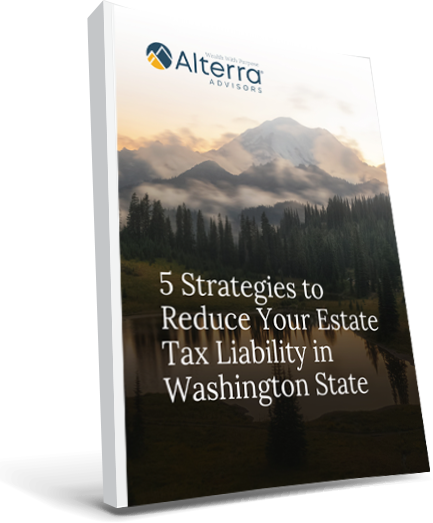I’ve heard that I should have a trust, but do I need one?
When it comes to protecting and passing your wealth, this is one of the most frequent questions we hear. Trust talk is everywhere and often includes conflicting advice, which doesn’t help. In one article you hear that everyone needs a trust and in the next you hear that most trusts are unnecessary. You might think having a trust means you’ve really taken care of your wealth because it’s “what wealthy people do.”
But when we dig in, we often find that people aren’t clear on what a trust is or what it really does. To help clear the confusion, we collaborated with Zeb Madison, an estate planning attorney at Madeira, PLLC, to discuss what a trust is and how to tell if you need one.
What is a trust?
A trust is a legal entity that can own assets just like you can own assets. At its core, its an agreement that generally involves three roles (which can sometimes be occupied by the same person):
- A grantor who sets up the trust
- A trustee who oversees the trust
- A beneficiary who benefits from the trust
Unlike a will, which is a set of instructions for what to do with assets you own at your death, a trust is a separate entity from you. You craft the instructions, choose which assets to transfer to the trust, and can even maintain control over the assets in some cases, but you no longer “own” the trust assets.
If a trust is simply another way to own an asset, what can it do?
What does a trust do?
A trust can be used in nearly limitless ways, in the same way that you can do almost anything you want with an asset you own. However, because a trust is a separate legal entity, it can live beyond you, protect from some kinds of risk, and help transfer your assets when you die. Trusts are commonly used to:
- Protect your assets from probate. I don’t want the state to make public disclosures and decisions about my wealth.
- Pass your wealth to future generations. I don’t want to leave a mess for my family to sort out.
- Protect your assets from estate taxes. I don’t want my family to lose my hard-earned wealth to taxes when I die.
- Protect your assets from liability. I don’t want to lose my wealth to a lawsuit.
- Place controls on your assets after you die. I don’t want my wealth to ruin my family or my family to ruin my wealth.
- Give to charity. I want to support the causes I care about when I die.
Do you need a trust?
With an understanding of what a trust is and what it can do, do you need one? If you resonate with any of the goals we just discussed, it’s worth a conversation with your financial advising team or an estate planning attorney. However, make sure your process starts with determining your desired outcome. Here are a few common scenarios we hear and trusts that are often used to help.
1. I have a simple estate and want a simple plan to pass my wealth to my family.
If you have a bank account, retirement fund, and a house, you might be well served with a well written will, including instructions on who should receive each of your assets. If you’re not at risk of owing state or federal estate taxes, a trust might be overkill. If you live in Washington State and aren’t sure if you’re at risk of owing estate tax, use our calculator to find out!
2. I want to avoid Washington State estate taxes, but I am not exposed to federal estate tax.
If your net worth exceeds $2.193 million and you live in Washington State, you might consider a testamentary trust, which can be established in your will. It helps avoid Washington’s state estate tax and allows you to pass more to your family. In some situations, however, a different type of trust may be better suited to meet your goals. This is why working with your financial advising team and an estate planning attorney is helpful.
3. I want an easy transition for those who will administer my estate when I’m gone.
A living trust lays out all your instructions ahead of time and has the added bonus of avoiding probate, protecting your family’s privacy. Often times, a living trust can streamline the transfer of assets, meaning less legwork for your family.
4. I want to fund education for future generations.
Some will set up a trust that limits use solely to educational expenses, which can help ensure that your wealth is dedicated to family education for years to come. These trusts will often hold assets in a 529 college savings plan because it also provides tax-free growth and withdrawals when used for qualified education expenses. For more, see 529 Plans – Taxes, Estate Planning, and Funding College.
5. I have a big estate tax bill ahead of me and I’m willing to do the work now to avoid as much tax as possible for my loved ones.
If you’ve done the analysis and you’re staring down a sizable estate tax bill, reducing that tax bill and preserving your wealth for your family might be your primary focus. For example, if you’re single, live in Washington State, and have assets worth $15 million, you could be exposed to nearly $3 million in estate tax. You can use a variety of irrevocable trusts to move money outside the reach of estate tax, passing more wealth to family.
An irrevocable trust often moves assets out of your taxable estate but can also mean giving up control of those assets, so it’s important to consult with a qualified financial and estate planning team to help find the balance of what you need access to and what you can afford to give up for tax saving purposes.
See 5 Ways to Reduce Estate Taxes and Pass More to Your Family for more!
6. I have a big estate tax bill ahead of me and want to leave my wealth to charity.
If your only goal is to leave wealth to charity when you die, you might simply be able to leave your assets to your favorite charity in your will without a trust. Accounts with beneficiary designations like retirement accounts and life insurance policies will have to be individually addressed to name a charity.
But if you are also paying high income taxes today, you might be able to address both income and estate tax problems with a Charitable Remainder Trust or another charitable trust that can give you tax benefits today and pass assets to charity tomorrow.
See 4 Ways to Reduce Estate Taxes and Pass More to Charity for more!
7. I don’t want my wealth to ruin my family or my family to ruin my wealth.
As we discussed, trusts can be used to add nearly limitless specific rules and restrictions on your assets. This can be restrictions for undesired behavior, provisions for specific needs like education, and many others. Customizing your trust to your goals requires a qualified estate planning attorney, and can serve to give you the assurance that your wishes will be carried out.
If you need a trust, where do you start?
Here’s a 4-step process to guide your efforts:
- Start with strategy. A wealth management team can help you think through where you are, where you want to go, and the impacts you want to make. This can help narrow down what you might need.
- Hire a legal professional. Depending on your desired outcome, you’ll need an estate planning attorney with experience in the strategy you need.
- Hire a CPA to help address complex tax issues.
- Set up a monitoring plan. A team like ours oversees this each year (sometimes more frequently) and will help you keep your plan up to date and on track. If you’re going it alone in your wealth management, set up a recurring time to check in with your estate attorney to discuss changes to your situation and any updates needed.
Remember, trusts are tools. Like any tool, it’s important to understand how the tool works, what problem it solves in your specific situation, and what the downsides might be. But the right trust in the right situation can help reduce estate tax, eliminate confusion, and make a big impact on the people and causes you care about.
Alterra Advisors does not offer legal or tax advice. Please consult the appropriate professional regarding your individual circumstance.
Zach Hamilton
CFP®
Partner, Financial Advisor
About the Author
Zach graduated from Gonzaga University with degrees in Marketing and Finance. While growing up, Zach heard stories from his grandfather about his work as an insurance agent, and other stories from his dad who was an investment manager. They both spoke financial “languages” but had completely different dialects. Recognizing the breadth of the financial vocabulary ultimately led to Zach’s passion for financial planning. He credits his family for this enthusiasm. Zach sees his time with clients as an opportunity to translate all of the different – and often confusing – information they’ve heard and provide clear guidance for each unique situation.
Zach enjoys working with people – his clients – who also appreciate that their financial decisions have an impact not just on themselves, but also on their families, charities and their own life legacy. Many of Zach’s clients have a strong desire to “make a difference”, and they rely on his financial expertise to magnify their philanthropic goals.
The “Alterra” name was coined by joining the Latin roots “alter”, the origin of the word “altruism” with “terra” meaning earth or land. This name reflects the company philosophy of “clients before profits” and providing firmly grounded advice.


